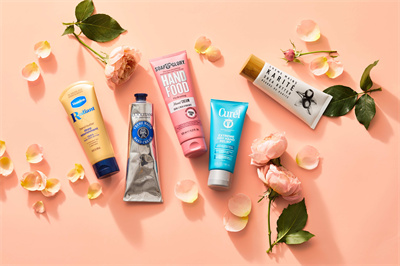Can You Use Hand Cream on Your Face?
August 10, 2024
When it comes to skincare, we often find ourselves surrounded by a multitude of products, each designed for specific areas of the body. Hand cream, primarily formulated to hydrate and protect the skin on our hands, is a staple in many people's daily routines. However, a common question arises: can you use hand cream on your face? In this article, we will explore the differences between hand cream and facial moisturizer, the potential benefits and drawbacks of using hand cream on your face, and some tips for effective skincare.

Understanding the Differences
The skin on your face is generally more delicate and sensitive than the skin on your hands. This means that the formulations of hand creams and facial moisturizers are often quite different. Hand creams are typically thicker and contain heavier emollients to combat dryness and protect against harsh environmental factors. They may also include fragrances and other additives that could irritate the sensitive skin on your face.
On the other hand, facial moisturizers are designed to be lightweight and easily absorbed. They often contain ingredients that cater specifically to facial skin concerns, such as acne, aging, or sensitivity. These products are formulated to provide hydration without clogging pores or causing breakouts.
Potential Benefits of Using Hand Cream on Your Face
While hand cream is not specifically designed for facial use, there are situations where it might be beneficial. For example, if you find yourself in a pinch without a facial moisturizer, applying a small amount of hand cream can provide immediate hydration. Hand creams are often rich in moisturizing ingredients like shea butter, glycerin, and oils, which can help to soothe dry skin.
Additionally, if you have extremely dry patches on your face, particularly in colder months, hand cream might offer a thicker barrier of protection that can help lock in moisture. However, it is essential to choose a hand cream that is free from harsh fragrances and irritating ingredients to minimize the risk of adverse reactions.
Potential Drawbacks
Despite the potential benefits, using hand cream on your face comes with several drawbacks. The thicker consistency of hand creams can clog pores, leading to breakouts, especially for those with oily or acne-prone skin. Moreover, the presence of certain ingredients, such as fragrances or alcohol, can cause irritation or allergic reactions on sensitive facial skin.
Another consideration is that hand creams may not provide the specific benefits that facial moisturizers do. For example, if you are looking for anti-aging properties or sun protection, hand cream will not fulfill those needs.
Tips for Skincare
If you decide to use hand cream on your face, here are some tips to keep in mind:
1.Patch Test: Always perform a patch test on a small area of your face to check for any adverse reactions before applying it more broadly.
2.Use Sparingly: If you choose to use hand cream, apply only a small amount to avoid overwhelming your skin.
3.Choose Wisely: Opt for hand creams that are free from fragrances, dyes, and other potential irritants.
4.Follow Up: If you experience any irritation or breakouts, discontinue use immediately and revert to a product specifically designed for facial care.
5.Invest in Quality Products: Whenever possible, invest in a good quality facial moisturizer that suits your skin type for the best results.
Conclusion
While hand cream can provide temporary relief for dry facial skin in a pinch, it is not a substitute for a dedicated facial moisturizer. Understanding the differences in formulation and purpose between these products is crucial for maintaining healthy skin. For optimal results, it is best to choose skincare products that are specifically designed for the unique needs of your face. Always prioritize your skin’s health and consult with a dermatologist if you have any questions or concerns about your skincare routine.
